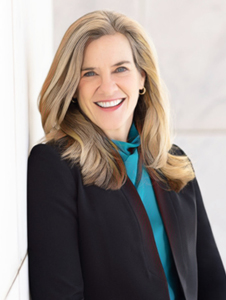Defending churches and other sensitive locations from government intrusion
At times, exercising religious freedom requires using the courts and Congress to stop government action that would undermine it, such as a recent change in immigration policy that threatens to make churches a target of wide-ranging expansion of law enforcement.

In response to the torrent of Trump administration executive orders that have unsettled so much, churches are continuing to do what they do best: providing a safe place for congregants and community members to gather, to listen, to mourn, to pray, to study, to organize, to serve and to hope. This exercise of our first freedom — the freedom of religion — is a mark of a free society, and it is something that should never be taken for granted.
At times, exercising religious freedom requires using the courts and Congress to stop government action that would undermine it, such as a recent change in immigration policy that threatens to make churches a target of wide-ranging expansion of law enforcement.
Among its plans to increase immigration enforcement and execute mass deportations, the Trump administration recently abandoned guidance that — for decades — has limited immigration enforcement activity at or around “sensitive locations,” such as schools, health care facilities, houses of worship and social service establishments. By rescinding that policy, our government threatens to disrupt essential services and cause maximum disruption in communities. The new policy gives government agents enhanced discretionary power to carry out enforcement actions — such as searches, surveillance and arrests — at places that were formerly considered off-limits except in the most extreme circumstances.
The negative impact of the policy change on attendance at churches in certain areas was immediate. Fortunately, the opposition to this policy change — particularly by religious communities — has been swift and clear. In two separate lawsuits filed in federal courts, dozens of religious entities from a variety of denominations — including BJC member bodies Cooperative Baptist Fellowship, Fellowship Southwest, and Convención Bautista Hispana de Texas — challenged the new policy as a violation of their religious freedom, particularly their freedom of association and rights under the federal Religious Freedom Restoration Act (RFRA). The groups in the separate lawsuits are represented by Democracy Forward and the Institute for Constitutional Advocacy and Protection (ICAP) at Georgetown Law, respectively. Both are experienced nonprofit litigation organizations.
As stated in ICAP’s press release, “By subjecting their places of worship to ICE enforcement actions without judicial warrant or exigent circumstances, the plaintiffs assert that the government is interfering with their religious activities and their ability to fulfill their religious mandate to welcome and serve immigrants.”
In the Democracy Forward case, the district court judge granted a temporary restraining order that prevents any enforcement action at the houses of worship that brought the litigation. While both cases work their way through the courts, members of Congress also are looking for ways to reinstate the sensitive locations policy and make it permanent. Legislation aimed at doing that is gaining support, but it has a long way to go.
While lawmakers and litigators are necessary to prevent encroachment on houses of worship and other sensitive locations, we all have a role to play. Decades of neglect of our immigration system have created a complicated reality for our country — one that law enforcement should navigate with care for human dignity and religious freedom. It is not surprising that many Americans want to see better enforcement of the laws, but at the heart of the decades-old policy against immigration enforcement at sensitive locations is an understanding that the execution of enforcement policies can have a profound impact on communities. It is the responsibility of law enforcement to ensure that its actions do not harm other important interests.
Religious communities depend on the freedom to gather for communal worship as a fundamental aspect of the exercise of religion. In general, churches, synagogues, mosques and other houses of worship provide gathering space for services and other ministries that are offered without regard to immigration status. The lawsuits, alongside the demands of citizens to the executive branch and members of Congress, should be a clear directive for the government that an increase in immigration enforcement need not violate essential notions of religious freedom and human dignity.
Holly Hollman is general counsel of BJC.
This article originally appeared in the spring 2025 edition of Report from the Capital. You can view it as a PDF or read a digital flip-through edition.




